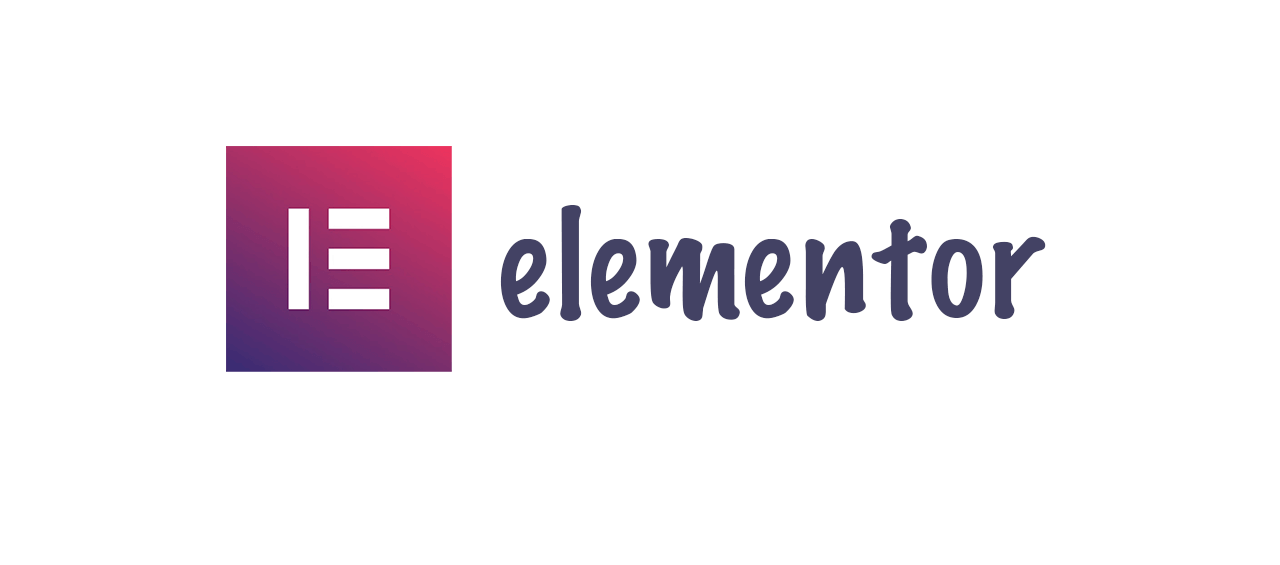Trying to pick between Gutenberg vs Elementor? As a WordPress user, you have heard about them a ton lately. You might already use one or both to design your site and make it work the way you want. So, you probably know a good bit about what they can do. But maybe you still have some questions rolling around in your head. I get it – I have been there. This article is here to help compare the two side-by-side.
Both tools have unique features and customization options to make building your site easier and more powerful. The developers behind each keep cranking out updates to give you smoother workflows. Depending on your needs, one might be a better fit than the other.
In this guide, we’ll look at Gutenberg and Elementor head-to-head. First, I’ll cover what they have in common functionally. Then, we’ll dig into the differences so you can see where one stands out over the other.
Ready to compare these two powerhouse WordPress tools? Let’s break it down.
What Is Gutenberg?
Gutenberg is the new WordPress editor that launched with WordPress 5.0. It aims to improve the overall editing and customization experience within WordPress. Here are seven key things to know:
Block Editor: the editor allows you to build pages by stacking different content blocks, like text, images, buttons, etc. It is more flexible than the old editor.
Custom Blocks: Developers can create reusable custom blocks to insert things like accordions, tabs, pricing tables, etc. Also, it saves time.
Design Choices: Change text size, colors, etc, right in the editor to customize the look on the fly without code—more design freedom.
Widget Support: You can choose from various drag-and-drop widgets to add galleries and forms. And it gives you more options.
Consistent Experience: The block approach makes editing consistent across pages, posts, and custom post types for simpler site-building.
Improved Security: Gutenberg features like autocompleting class names prevent errors that could lead to vulnerabilities. More secure.
Future Expandability: With the block approach and integration of design tools, more enhancements are expected down the road.
What Is Elementor?
Elementor is a popular WordPress page builder plugin. It also uses a visual, drag-and-drop approach for flexibility in designing pages. Key things about Elementor:
Intuitive Builder: Easy-to-use WYSIWYG editor lets you drag-and-drop elements to assemble responsive page layouts.
Design Widgets: Extensive library of over 90+ content widgets for adding things fast, like media, sliders, buttons, etc.
Style Options: Change colors, spacing, backgrounds, etc, globally or per widget. Consistent yet customizable styling.
Responsive Editing: Edit mobile/tablet views in the editor—no guesswork for responsiveness.
Templates & Themes: Professionally designed starter site templates and themes.
Dynamic Content: Display things dynamically, like post titles or images. Moreover, it’s great for blogs.
Extensions: Added features like pop-ups, forms, WooCommerce, and more available. Expandable functionality.
Gutenberg vs Elementor
So, how are they different? Now, let’s compare the features of Elementor and Gutenberg.
| Feature | Gutenberg | Elementor |
| User Interface | Basic block editor | Intuitive drag-and-drop builder |
| Ease of Use | Steeper learning curve | Very easy to use even for beginners |
| Functionality | Limited options and less flexibility | Tons of widgets and design options |
| Performance | Fast performance | Can slow down sites with lots of heavy widgets |
| Backend vs Frontend Editing | Backend editing | Frontend editing |
| Customer Support | Standard WordPress community support | Excellent customer support |
| Website Speed | Very fast | Can slow down site if not optimized |
| Responsiveness | Responsive but less control | Fully responsive with mobile editing |
| Pricing | 100% free | Free and paid plans from $59/year |
Gutenberg vs Elementor – A Detailed Comparative Analysis
When choosing a page builder, you have to think about many things. Like, which one is easy to use? Which one makes pages faster? And whose templates are better? We’ll discuss all these details in this section so you can make an informed decision.
Ease of Use
Let’s see how easy it is to use Elementor and Gutenberg. In this aspect, Gutenberg is more accessible to use. Here’s why:
Gutenberg is the default editor in WordPress, so it works well with any themes or plugins you add. You never have to be concerned about compatibility issues. The user interface is also integrated with your WordPress site’s admin panel.
On the other hand, Elementor is a plugin that is not built into WordPress by default; it’s like an extra tool. Because of this, it has a different interface, which might take a bit of time to get used to, especially if you need to get more comfortable with technology and don’t call yourself ‘tech-savvy.’
Remember, the team designed Elementor to be easy to use, so it’s easy to learn. But if you want an editor that you can use immediately without learning, it’s better to stick with Gutenberg.
Functionality
Let’s break down another part: Elementor and Gutenberg have different features.
Here, we’ll discuss the basic functionalities of Elementor first.
- It helps you make great websites quickly.
- It has a drag-and-drop editor, which means you can build pages rapidly, even if you’re a beginner.
- There are over 100 widgets to create complex pages, and it works well with WooCommerce for online stores.
- You also get a library of 1,500+ icons and tools to design every part of your website.
Elementor Pro is suitable for teamwork and gives you everything to make functional and good-looking websites, even if you’re not a design expert.
On the other hand, Gutenberg is a block-based editor. You use different blocks to make posts and pages with media. It’s simple to use, and you don’t need to know how to code.
Gutenberg has features like
- WYSIWYG editing,
- reusable blocks for templates,
- and various styling options.
You can also use plugins like Otter Blocks to add more features. If you use Gutenberg, you don’t need to install other page builders.
Both Elementor and Gutenberg work well on mobile devices, ensuring your website looks good on different screen sizes.
Performance
If you want your website to load quickly, Gutenberg is the better choice. Gutenberg is one of the main features of WordPress and works as a primary editor, making the designs you create with it more friendly to your website’s performance.
You can still make fast-loading websites with Elementor, but it takes more attention and work to achieve that speedy performance.
In general, a design made with Gutenberg will be better optimized for performance compared to a design made with Elementor, even if everything else is the same.
Backend vs Frontend Editing
The key difference lies in how you make changes to pages and sections:
Gutenberg’s a backend editor. It shows you a nearly accurate idea of how your content will appear when you preview it. However, to see the actual view, you have to click the preview button.
In contrast, Elementor lets you edit on the frontend as it has a frontend editing feature, meaning you can see changes live without saving the page. It provides an instant preview of your page as you edit.
Elementor is more intuitive since you’re working on the actual front-facing website. Gutenberg feels a step removed since you’re working in an editor and then previewing.
For beginners especially, frontend editing is faster to pick up than the backend.
Customer Support
Both page builders come with documentation, forums, email support, etc. A few noteworthy points:
- Elementor offers live chat support in addition to everything else, which is extremely useful for quick questions.
- Response time is faster with Elementor’s support over Gutenberg.
- Elementor has a more extensive community, so solutions to issues are easier to find either via docs or searching.
Website Speed
In the category of website speed, Gutenberg comes out on top. We all want our websites to load fast so that people stay and read the content. That’s why how quickly a page loads is essential when deciding which one to use.
Gutenberg wins in this area because it has a simpler structure, making it more efficient and faster to load. If you really care about how fast your page loads, Gutenberg is the better choice. Moreover, it has fewer extra features that can make your site heavier and slow down the loading time.
Elementor is not a slow page builder; it’s still relatively fast compared to many others. However, when it comes to page speed, Gutenberg is ahead.
However, make sure that the WordPress theme you choose doesn’t hinder your website! Even with a lightweight editor, picking a heavy theme could still cause loading times to increase.
Responsiveness
Gutenberg and Elementor were made to ensure your website looks good on phones and tablets. No matter which one you use, your site will be excellent on mobile.
But if you pick Gutenberg, the standard editor for WordPress, there’s something important to remember. Even though Gutenberg can work with any theme, you have to make sure the theme is designed to look good on mobile devices.
If you accidentally choose a theme that isn’t good for mobile, using the Gutenberg editor won’t automatically fix it. So, before you install a theme, check if it’s mobile-friendly. Do your research to ensure your site looks great on phones and tablets.
Pricing
Gutenberg is great because it’s completely free to use. You don’t have to spend any money on this editor.
On the other hand, Elementor has both free and paid versions.
Sometimes, the free version of Elementor might be good enough for what you want to do. But if you want to unlock all the features, you might need to upgrade and pay for it.
There are four plans for Elementor, so you can choose the one that fits your needs.
- The cheapest plan is the Essential Plan, which costs $59 annually and covers one website.
- The next plan is the Advanced Plan, which supports three websites and costs $99 annually.
- Then, there’s the Expert Plan for 25 websites, priced at $199 annually.
- The highest tier is the Agency Plan, which covers 1000 websites and costs $399 yearly.
Verdict: Which One Should You Choose?
Here is a recap of the key differences between the two-page builders:
For beginners, Elementor is faster to learn and enables the building of highly customized, pixel-perfect pages and websites with superior UI and UX. The frontend editing model is more intuitive than Gutenberg’s backend editing system.
For advanced users, Elementor offers more control and customizability over all aspects of your site design, be it fonts, color schemes, layouts, shapes and sizes, effects and animations, etc.
Elementor professional templates, global styling features, and site-wide design consistency tools take customization to the next level.
The only reason to use Gutenberg is that it’s free. But think of Elementor as an investment into your website that pays for itself manifold in the long run through more traffic leads and sales compared to what is possible with Gutenberg sites.
However, Elementor is the clear winner when evaluated thoroughly. It enables building conversion-focused websites without requiring custom code skills and is worth the small investment in Elementor Pro. Gutenberg has too many limitations by comparison.
This detailed Elementor vs. Gutenberg comparison helps you make the best choice for your needs!
Conclusion
In the domain of WordPress, Gutenberg, and Elementor are the two most popular tools. Both (Gutenberg vs Elementor) have their advantages and drawbacks. The final decision eventually depends on several factors – including but not limited to the budget allocated, website speed, and responsiveness.
Enhance your digital reputation with the professional WordPress services the Canadian Software Agency offers. We expertly combine functionality and creativity to create a unique website that engages and converts.






